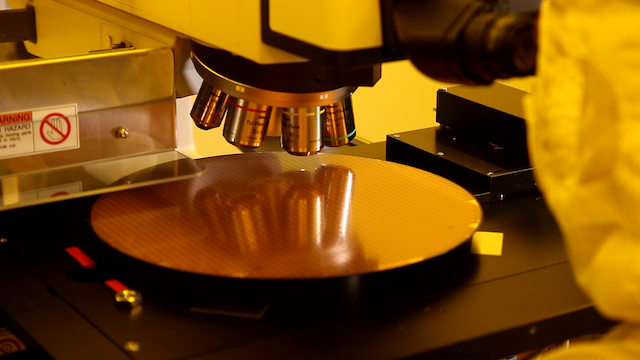
0755-83687076
Author: admin Time:2021-12-15 Click:
Recently, the China Passenger Car Association (CPCA) released information indicating that the shortage of automotive chips in the third quarter of 2021 has eased. It is expected that the supply of chips in October will improve by 20% compared to the previous month. Additionally, car manufacturers such as Toyota and Nissan have recently announced plans to increase production, and General Motors, Volkswagen, and Ford have also raised their earnings forecasts based on market conditions.
The issue of "car chip shortages" has become a common topic of discussion. Since the end of 2020, car manufacturers such as Toyota, Ford, and Volkswagen have been forced to reduce or halt production due to the lack of chips.
However, this worrying situation is gradually changing. Recently, the global car chip shortage problem appears to be easing, with international car manufacturers releasing positive signals of expanding production. This is reversing the trend of reduced car production caused by the tight supply of automotive chips.

Production Plans Return to Normal
In September and October of this year, Malaysia and other regions experienced a severe resurgence of the COVID-19 pandemic, resulting in significant capacity shortages in factories and widespread shortages of automotive chips. According to statistics, by October of this year, the global automotive market had accumulated a production reduction of 9.345 million vehicles due to the chip shortage, and the order fulfillment rate for automotive chips was even less than 20%, causing concern in the industry. However, with the gradual improvement of the pandemic situation and the active expansion of chip companies' production capacity and supply, car manufacturers around the world have recently released positive signals of expanding production, signaling a gradual reversal of the trend of reduced car production caused by the tight supply of automotive chips.
Currently, many renowned car manufacturers have stated that they are planning to increase production and hope to resume production as soon as possible. Nissan, which was forced to shut down its assembly line at the Smyrna plant in Tennessee due to chip shortages, is one of the car manufacturers planning to increase production in the near future. Recently, Nissan informed its suppliers that it plans to increase production by nearly 300,000 vehicles in the second half of this year compared to the first half. According to Nissan's specific disclosures, the company's global sales forecast for fiscal year 2022 is expected to be reduced to 3.8 million vehicles, and its operating profit forecast is expected to increase to 180 billion yen (approximately 1.59 billion US dollars). If the forecast is accurate, this will reverse the company's unfavorable situation of a loss of 150.6 billion yen in fiscal year 2020.
In addition to Nissan, other Japanese manufacturers are also stepping up their efforts to expand production. Toyota has already resumed production and saw a 4% to 10% increase in car production in November after a 40% decline in September. Toyota stated that it hopes to further increase production in December this year, planning to increase production by 30% to 1 million vehicles compared to the same period last year, making up for the production shortfall caused by various factors during the summer of 2021. Toyota also said that starting in January 2022, the company will increase its monthly production to 850,000 vehicles.
Honda's production plans are also steadily recovering. In the second quarter financial report released a few days ago, Honda's quarterly profit decreased by about 30%, and its annual profit forecast was lowered by 15%. Due to the forced production reduction caused by the global chip shortage, Honda's production in the first half of this year decreased by 20%, with only 535,000 vehicles. Although the production in the second half of the year will still be 10% less than the original plan, Honda stated that it will gradually resume production from the beginning of the new year in 2022.
In the United States, many car manufacturers have a positive attitude towards their annual net profit expectations, indicating an upward trend in car production. General Motors, for example, is planning to speed up its production. GM expects that the shortage of automotive chips will be alleviated by the end of 2021. According to public information, GM has raised its annual net profit forecast from the range of 7.7 billion to 9.2 billion US dollars to the range of 8.1 billion to 9.6 billion US dollars, and the company plans to improve production efficiency by the end of this year.
Another American car manufacturer that has raised its full-year net profit forecast is Ford. Ford stated that it is currently taking appropriate measures to manage its supply chain and hopes to effectively improve the semiconductor supply situation in the short term. Ford believes that the automotive chip shortage problem will be further alleviated before the end of this year.
As the global supply of chips stabilizes, Germany's largest company, Volkswagen, is expected to see an improvement in its financial situation for the fourth quarter of this year, sending a positive signal for the active resumption of production and increased output.

Market Variables Remain
Due to the positive trend in the global automotive chip market, international car manufacturers are frequently expanding production. Similarly, in the domestic automotive chip market, there are also some encouraging signs.
Compared to the optimistic judgment at the beginning of this year, the Chinese passenger car consumption market from mid-year to the end of the year was not calm. According to the information provided by the CPCA, specifically, the domestic passenger car consumption was affected by factors such as the pandemic, floods, chip shortages, and power restrictions, forming a relatively low base. However, this situation has improved. Secretary General of the CPCA, Cui Dongshu, told China Electronics News that the impact of the low base caused by chip interference factors has already dissipated.
The CPCA pointed out that the low point in the supply of automotive chips in the third quarter has also passed. According to the information released by the CPCA, in the third quarter of 2021, the supply shortage of automotive chips in China eased, with a 20% improvement in chip supply expected in October compared to the previous month. Cui Dongshu said that the supply situation of automotive chips gradually improved at the end of September, leading to the recovery of car production and sales in October.
Despite the hopeful signs in the vast market related to the automotive industry in China, there are still some variables in the automotive industry that could potentially cause disturbances.
One of the factors to note is the supply transparency bottleneck in the automotive market. Currently, the actual monthly increase in chip supply is only about 10%, indicating that the supply transparency bottleneck still exists.
More importantly, the long-standing issue of automotive chip supply tension, which has "disturbed the world for a long time," remains a concern. "The shortage of automotive chips will not be completely alleviated by the end of this year," Cui Dongshu told China Electronics News. Although the shortage of automotive chips is showing signs of easing, it will still exist by the end of this year. Cui Dongshu believes that this situation may gradually improve in the spring of 2022.
The lack of chips has a significant impact on car sales. Cui Dongshu told China Electronics News that due to the difference between the industry's initial forecast of car sales and the actual situation of car sales this year, the domestic car sales loss caused by the chip shortage is expected to reach about 1.5 million units in 2021.
In response to the automotive chip shortage issue, BURU Consulting General Manager Bu Rixin also expressed his views to China Electronics News. Bu Rixin said that there are still no signs of a normal recovery in automotive chip supply, but the shortage of automotive chips will not be a long-term phenomenon.
"In the future, as production allocation becomes more balanced and there is no large surge in market demand, the chip market will still tend to balance supply and demand," Bu Rixin told China Electronics News frankly. He believes that all shortages are caused by irrational factors in the short term, and chip capacity is no exception. In Bu Rixin's view, after experiencing this round of automotive chip shortage, many car companies should have learned lessons and made more accurate forecasts for chip capacity and other issues.
To avoid potential chip shortages in the future market, Cui Dongshu also provided suggestions to car companies through China Electronics News. Cui Dongshu said that domestic car companies should quickly achieve independent development of the industrial chain and increase inventory reserves, preparing for rainy days under reasonable stocking.